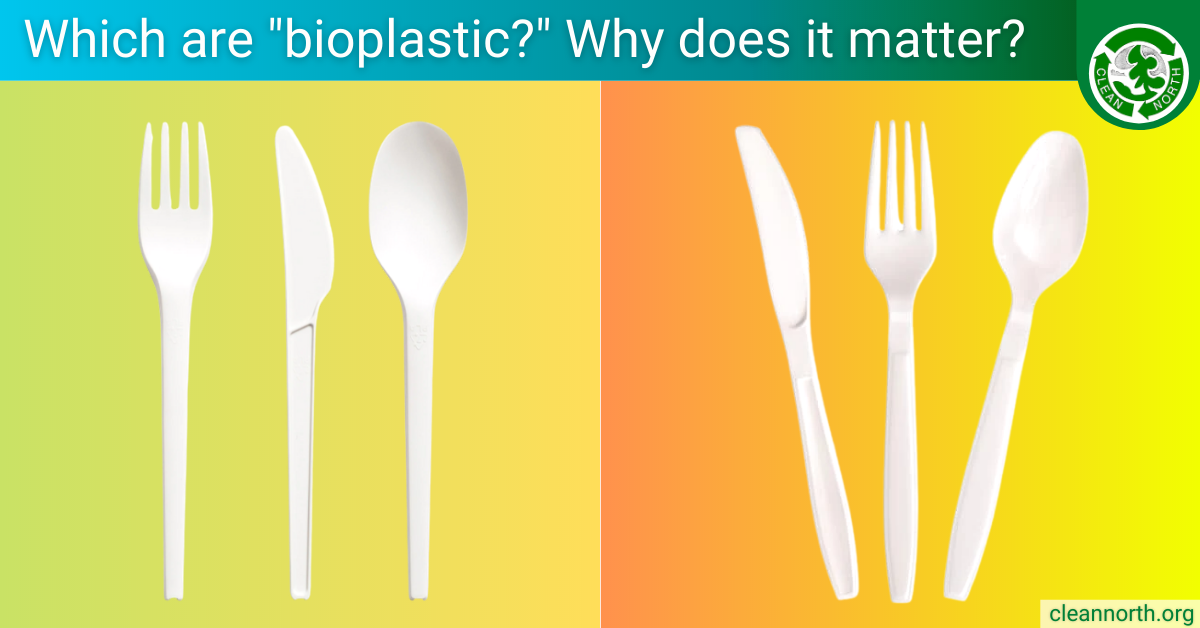
Are bioplastics the answer to the plastic pollution crisis? NOPE. In fact, bioplastics are a bit of a fiasco! Here’s why:
- Bioplastics may contain only a small portion of renewable material such as starch from corn or wheat (and BTW, producing these crops is not without environmental impact). Up to 80% of bioplastic items could be made of fossil-fuel-based materials.
- Bioplastic items that are said to be biodegradable or compostable are unlikely to break down in the conditions found in most home or city composters. AND they may contain materials that render compost unsuitable for applying to food crops. In fact, those producing organic food are not allowed to use compost to which compostable plastic has been added.
- Bioplastics don’t break down quickly in the ocean, either.
- Some plastic items claimed to be “green” are not biodegradable at all but rather “degradable”…which means they simply break apart into microplastic bits, ending up in our water, food, and even human placentas!
- Bioplastics cannot be recycled, but many confused consumers see the “green” label on these products, assume they are recyclable, and place them in their recycling bins, contaminating the plastic recycling stream and causing more plastic loads to end up in landfills.
What can we do?
- Be wary of plastics labelled natural, plant-based, biodegradable, or compostable — find out what’s in them and whether they are truly green
- Refuse single-use plastics whatever they are made of — choose reusable bottles, picnicware, cups, straws, cutlery, etc.
- Choose bamboo toothbrushes instead of bioplastic ones
- Avoid detergent strips and pods, which yes, dissolve but contain polyvinyl alcohols that can be hazardous to aquatic ecosystems
- Know local recycling rules and follow them (no bioplastics!)
Finally…the answer to the “which are plastic?” question in the graphic with this post? The cutlery set on the left. But the fact that it’s so hard to tell the difference is a problem.
Read more: https://www.treehugger.com/problem-bioplastics-4857750.




